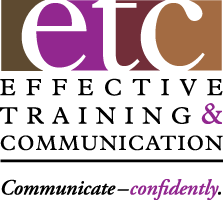People have different preferences about how they communicate. Some people would rather talk than write. Others would rather write than talk. Yet others have very high response rate to texts. No surprises there!
 Phil Stella
Phil Stella
Why I Hate ‘Right’
During a recent business conference, the experienced and otherwise effective speaker had a conspicuous habit of saying ‘… right’ all the time. It was as if he replaced the annoying ‘ummm’ with the equally annoying ‘right’.
Why I Hate “Work/Life Balance”
This month’s rant is about a cliché we all hear and many of us use – ‘Work/Life Balance’. I understand and love the concept … but I hate the words used. So please, humor this incurable wordsmith a little. The connotation implies that ‘life’ is the opposite of ‘work’ and must be balanced with it. Conversely, ‘work’ is the opposite … Read more
Why I Love Proper Quotes
I love using quotes in my writing and presentations – I really do.They can add sizzle, credibility or perspective to the message. However, I really love using quotes correctly by including author details. Few people are so well known that they don’t need any reference, like Abraham Lincoln, Mark Twain, Winston Churchill or Dr. Martin Luther King, … Read more
Why I Hate ‘Small Talk’
A regular reader recently asked about using small talk while networking. My response was short and simple – just say ‘NO’ to small talk. It doesn’t help you that much. Go for ‘Big Talk’ instead.
Why I Love Letter ‘B’
Imagine you’re delivering a presentation with some projected support slides. You get to a section that has no slides – what do you do? If you leave up the last slide that now doesn’t relate to the content, it looks like a mistake and can be distracting, If you bring up the next slide that … Read more
Why I Hate Automated Voice Messaging
When calling a business or colleague, how often do you hear ‘Your call is being forwarded to an automated voice messaging system … 475 338-0298 is not available … ‘ I really hate that – it’s cheap, lazy, impersonal and not caller-friendly. How much better to have taken a few minutes to record a short, … Read more
Why I Hate ‘two (2)’
I recently got a document from a client asking me to review and comment. Happens all the time. My pleasure to be of service. But, this one had the phrase ‘… schedule two (2) planning meetings … ‘. I’m not making this up. It’s 2024 and people still think they need to tell readers that … Read more
I Love Escalator Speeches
We all know that Elevator Speeches should be the short and simple answer to the often-asked question at networking events – ‘What do you do?’. Sometimes, they’re even clever, but most of the time they’re lame, too long and forgettable. Even so, they’re still a fact of business life. So, that’s why I love Escalator … Read more
